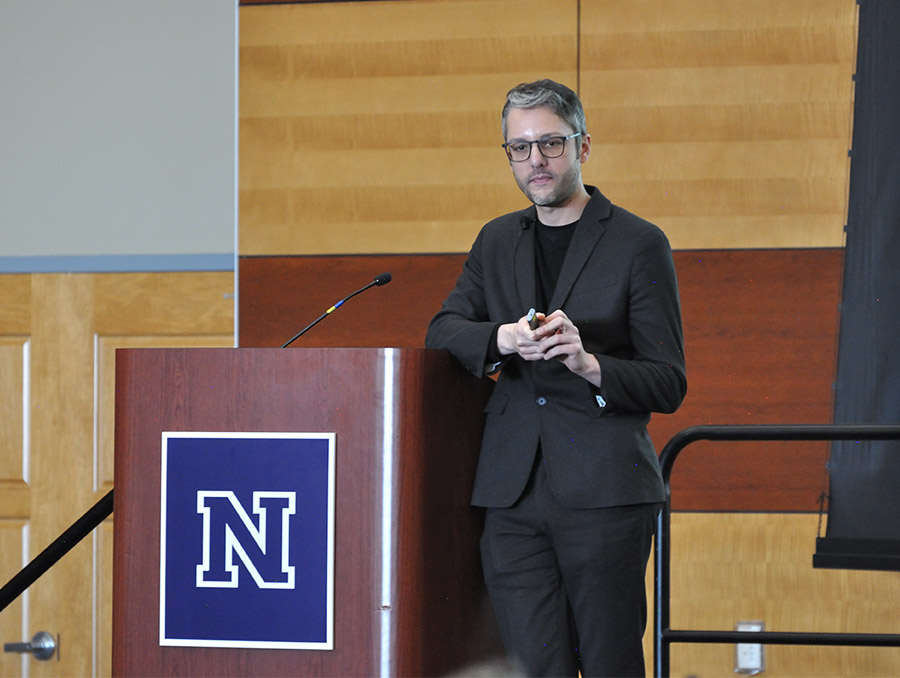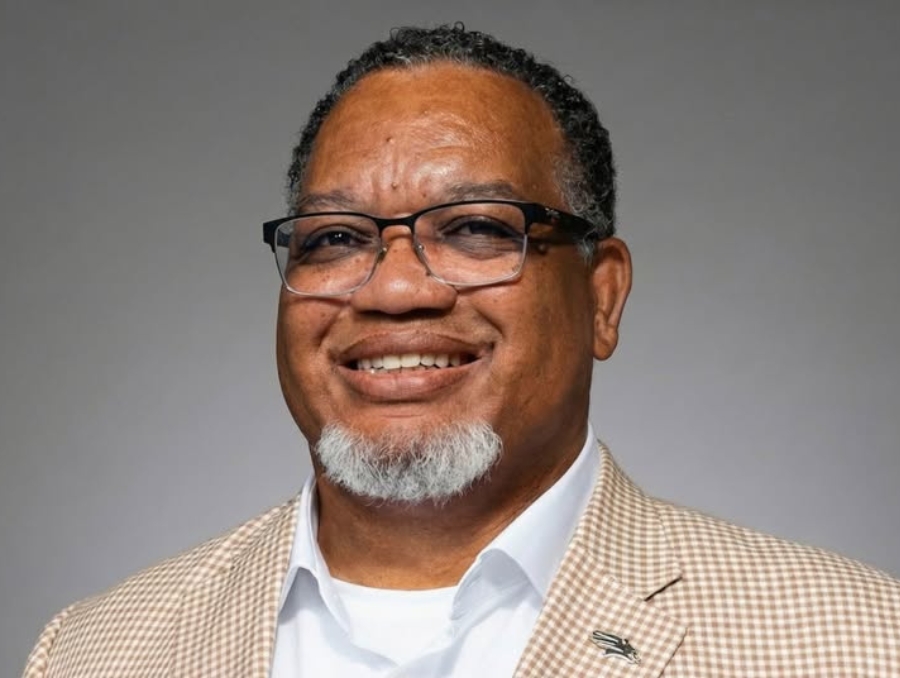About 280 small business owners, educators, students and representatives from industry and government met Nov. 12 for the University of Nevada, Reno Cybersecurity Conference. Cybersecurity for small and medium-sized businesses was the focus of this year’s event, now in its fifth year.
“Cyberattacks are very costly for small and medium-scale businesses, as they operate within tight budget constraints and limited available resources,” Shamik Sengupta, computer science & engineering professor and executive director of the University of Nevada, Reno Cybersecurity Conference, said.
This year’s conference brought in cybersecurity and tech experts such as Daniel Eliot of the U.S. Department of Commerce’s National Institute of Standards and Technology (NIST). NIST, which creates cybersecurity guidelines and best practices for industry as well as government, released its NIST Cybersecurity Framework (CSF) 2.0 earlier this year.
CSF 2.0 was developed over a period of two years with input from industry and includes an emphasis on supply chain and third-party risk management, among other new features. A companion piece to the document is six quick-start guides that can help businesses implement CSF 2.0.
“For small businesses, these work best,” Eliot said.
Another NIST cybersecurity resource is the Small Business Cybersecurity Corner website, a repository of NIST and government resources regarding cybersecurity.
“We bring resources that we think will bring value to the small business community,” Eliot said. “We try to update this pretty regularly.”
In addition to Eliot, Check Point Software Technologies Chief Technology Office Aaron Rose discussed how businesses can use artificial intelligence (AI) to enhance their operations.
The conference also included panel discussions on the cybersecurity landscape and the need for interdisciplinary perspectives as well as cybersecurity in higher education. University students presented on two topics: offensive security, simulating attacks to identify vulnerabilities, and open-source tools for businesses.
Event panelists were Paromita Pain, associate professor of global media at the Reynolds School of Journalism; Sarah Grubbs, managing director for TrailRunner International; Matthew J. Myers, National Security Agency liaison to the University; Jake Wahrer, vice president of infrastructure and technology at Northern Nevada HOPES; Amber Hankins, computer science & engineering graduate student; E. Marie Brierley, president of Saatvik Advisors and Saatvik Research; Derek Eiler, Nevada System of Higher Education (NSHE) principal systems engineer; Matt Johnson, director of information management for the Nevada Army National Guard; Michael Kennedy, information security officer for the Nevada Division of Public and Behavioral Health; and Scotty Strachan, NSHE principal research engineer.
For more on the conference, visit the Cybersecurity Conference website.
















